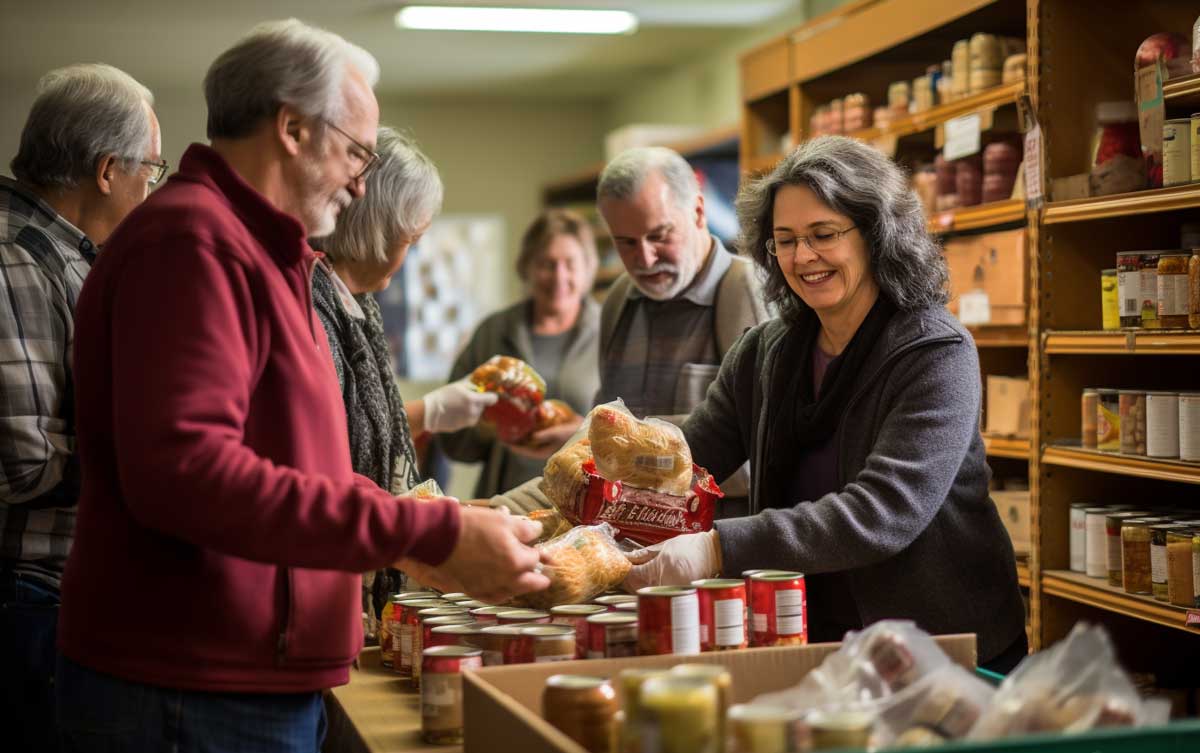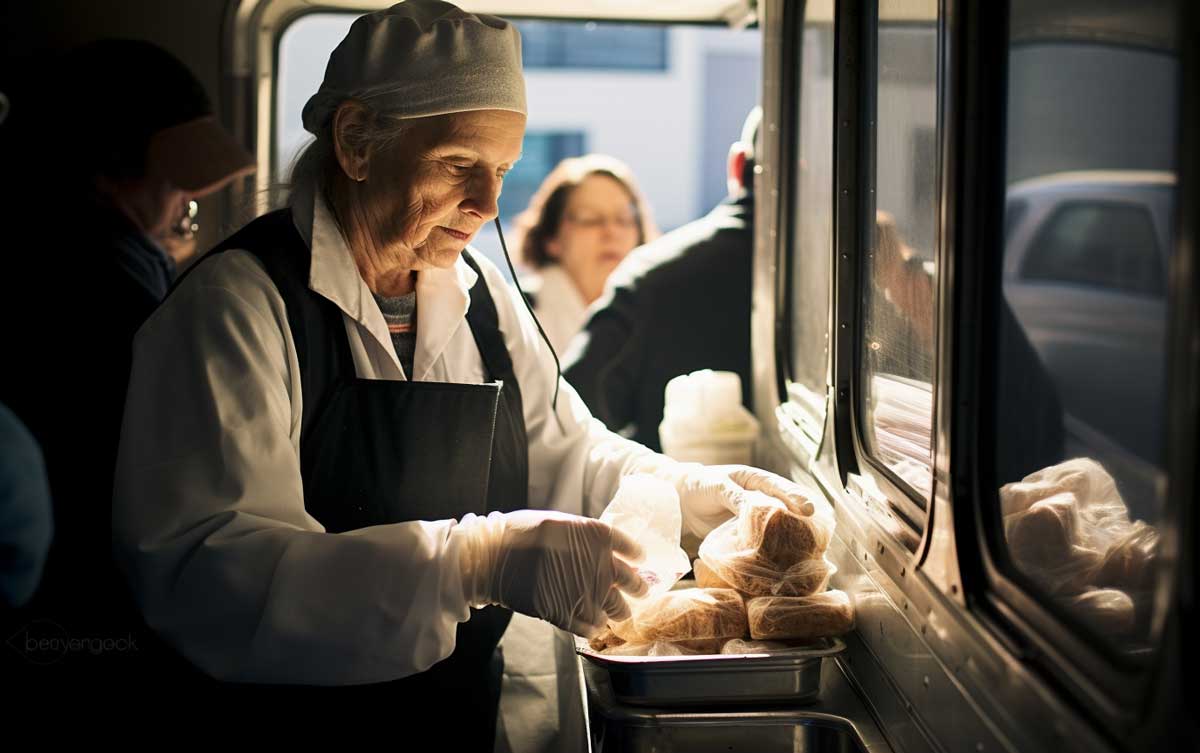The Supplemental Nutrition Assistance Program (SNAP), formerly known as the Food Stamp Program, is a federal initiative that offers food-purchasing assistance to low- and no-income individuals to ensure they maintain adequate nutrition.
Each state has its own set of eligibility requirements, and in this article, we will delve into the specifics of SNAP benefits Missouri eligibility and their eligibility criteria.
Definition Of SNAP Benefits
SNAP is a program designed to help low-income families and individuals purchase nutritious food. Beneficiaries receive an Electronic Benefit Transfer (EBT) card, which works like a debit card and can be used at authorized stores to buy eligible food items. The amount of benefits a household receives depends on its size, income, and certain expenses.
Overview Of Eligibility Requirements
To be eligible for SNAP benefits in Missouri:
-
You must live in Missouri.
-
All members of your household should have (or agree to apply for) a Social Security Number.
-
Your household income should not exceed the current income limit set by the state.
Income Limits
Income limits are set to ensure that the benefits go to those who need them the most. These limits are based on the federal poverty level and are adjusted annually.
Maximum Monthly Income
The maximum monthly income limit varies based on the size of the household. For instance, a household of one person has a different income limit compared to a household of four. It's essential to check the current year's guidelines, as these figures are updated annually.
Minimum Monthly Income
Categorically eligible one and two-person households are entitled to a minimum of $23 in benefits. However, the exact amount can vary based on specific circumstances and the overall household income.
Special Circumstances For Exceeding Maximum Income Levels
There are certain situations where a household might exceed the maximum income levels but still qualify for SNAP benefits. For example, households with elderly (60+) or disabled members have a higher income threshold. It's crucial to consult with the local Family Support Division (FSD) office to understand these special circumstances.
Sources Of Countable Income
When determining eligibility for SNAP, various sources of income are considered. This includes:
-
Wages and salaries
-
Social Security benefits
-
Unemployment benefits
-
Child support
-
Pensions
-
Other forms of regular income
It's essential to provide accurate information about all sources of income when applying for SNAP benefits to ensure a correct determination of eligibility.
Household Size And Composition
The size and composition of a household play a significant role in determining eligibility for SNAP benefits in Missouri. The state has specific guidelines on who can be counted as a member of the household, and these guidelines impact the amount of benefits a household can receive.
Definition Of An Eligible Household Member
In Missouri, the following individuals are considered mandatory members of a SNAP household:
-
Spouses: A marriage must result from a valid civil contract (marriage license). A marriage established in another state is recognized in Missouri as long as the marriage was legal in the state where it was established. For instance, if a couple has a common law marriage in Kansas and moves to Missouri, they are considered a married couple for SNAP eligibility in Missouri.
-
Children 21 Years Of Age Or Younger: This includes children up to the month they turn 22, living with their biological or adoptive parent(s) or stepparent(s). An adopted child living in a household that also includes the biological parent would be a mandatory member with the adoptive parent(s), not the biological parent, as they have given up parental rights.
-
Children Under 18 Years Old: Except for foster children, children under 18 who are under the parental control of a person other than their parent are considered household members. A child is deemed under parental control if they are financially or otherwise dependent on a household member.
-
Boarders Paying Less Than A Reasonable Monthly Payment: Boarders are ineligible for SNAP benefits separate from the household they reside in. However, the household in which the boarder resides may be eligible if they meet all program eligibility requirements.
-
Individuals Consuming Over 50% Of Their Meals At The Residence: If an individual eats more than half of their meals with the household, they are considered a part of the household composition.
Rules For Including Children In The Household Size Calculation
Children play a crucial role in the household size calculation for SNAP benefits. The following rules apply:
-
Children 21 years of age or younger, up to the month they turn 22, living with their biological or adoptive parent(s) or stepparent(s) are included.
-
Foster children under 18 years old can be optionally included in the household size. However, other children under 18 who are under the parental control of someone other than their parent are mandatorily included.
Rules For Including Non-Citizens In The Household Size Calculation
The rules for including non-citizens in the household size calculation for SNAP benefits in Missouri are not explicitly mentioned in the provided content. However, it's essential to consult with the local Family Support Division (FSD) office or refer to the official Missouri SNAP guidelines to understand the specific criteria for non-citizens.
Asset Limits And Exemptions
In addition to income limits, the state of Missouri also considers the assets and resources of a household when determining eligibility for SNAP benefits. Understanding these asset limits and exemptions is crucial for potential beneficiaries to ensure they meet the program's criteria.
Definition Of Assets And Resources
Assets and resources refer to the total value of items or funds that a household possesses. This includes:
-
Bank Accounts: The total amount in checking, savings, and other bank accounts.
-
Real Estate: The value of any property or land owned by the household, excluding the primary residence.
-
Vehicles: The value of cars, trucks, or other vehicles, although some states may have exemptions for a primary vehicle.
-
Investments: This includes stocks, bonds, and other financial investments.
-
Trusts: Any funds or properties held in trust that can be accessed by the household.
It's essential to note that not all assets are counted towards the SNAP asset limit. For instance, retirement savings and the most recent tax returns are typically excluded from the asset calculation.
Maximum Asset Level Allowed By SNAP Guidelines
Missouri has set specific asset limits for households applying for SNAP benefits:
-
The standard asset limit is $2,000.
-
For households that include at least one elderly (aged 60 or above) or disabled person, the asset limit is increased to $3,250.
It's crucial for households to stay within these asset limits to qualify for SNAP benefits. However, there are certain exemptions and deductions that can be applied, which might affect the total countable assets. For a comprehensive understanding of these exemptions and how they might impact eligibility, it's recommended to consult with the local Family Support Division (FSD) office or refer to the official Missouri SNAP guidelines.
Employment Requirements & Training Programs
The state of Missouri has established specific employment requirements for SNAP participants to ensure that beneficiaries are actively seeking opportunities to become self-sufficient. These requirements are complemented by training programs designed to equip participants with the necessary skills and knowledge to secure gainful employment.
SkillUP Program: A Pathway To Employment
The SkillUP program is a cornerstone of Missouri's efforts to support SNAP participants in their journey toward financial independence. This voluntary program offers participants the chance to acquire skills, undergo training, or gain work experience, all aimed at helping them meet the work requirements set by SNAP and ultimately find sustainable employment.
Key Features of the SkillUP Program:
-
Voluntary Participation: While the program is open to all SNAP participants, it is entirely voluntary. Participants can choose to join the program, whether they are mandatory participants like Able Bodied Adults Without Dependents (ABAWDs) or volunteers.
-
Diverse Training Opportunities: The SkillUP program offers a range of training and educational opportunities tailored to the individual needs of the participants. These can include personal financial management education, job search education, business skills training, job retention training, career services, and short-term training programs.
-
Individual Employment Plan (IEP): Each participant in the SkillUP program works with the staff to develop an IEP. This plan outlines both short-term and long-term goals and connects the participant with the services they need to achieve these goals. The IEP is a roadmap, guiding participants towards the right training or employment opportunity that matches their skill level, experience, and career aspirations.
-
Focused Approach With One-On-One Case Management: The SkillUP program adopts a personalized approach, offering one-on-one case management for participants. This ensures that each individual receives the attention and support they need to succeed in finding sustainable employment.
-
Referral Process: If a SNAP participant expresses interest in the SkillUP program, staff can submit a referral to the SkillUP team. This referral process is streamlined and ensures that participants are connected with the right resources and training providers in their vicinity.
Employment Requirements for ABAWDs:
Able Bodied Adults Without Dependents (ABAWDs) have specific work requirements to continue receiving SNAP benefits. They must engage in work or training activities for at least 80 hours per calendar month. Failure to meet this requirement means that ABAWDs will only receive SNAP benefits for three months. To assist them in meeting this requirement, ABAWDs are informed about the SkillUP program shortly after their SNAP benefits approval. They are also provided guidance on selecting the appropriate SkillUP provider to meet their needs.
Frequently Asked Questions
To help you better understand SNAP benefits Missouri eligibility, we've answered some of the most frequently asked questions.
What is the SkillUP program in Missouri?
The SkillUP program is a voluntary initiative designed to offer SNAP participants in Missouri the opportunity to gain skills, undergo training, or acquire work experience. The goal is to help them meet SNAP work requirements and secure sustainable employment.
Who can participate in the SkillUP program?
Both mandatory participants, like Able Bodied Adults Without Dependents (ABAWDs), and volunteers can choose to participate in the SkillUP program.
How does the Individual Employment Plan (IEP) work?
The IEP is a tailored plan developed for each SkillUP participant. It outlines both short-term and long-term employment goals and connects participants with the necessary services and training to achieve these objectives.
What are the work requirements for ABAWDs in Missouri?
ABAWDs must engage in work or training activities for at least 80 hours per calendar month. If they fail to meet this requirement, they can only receive SNAP benefits for three months.
How can I get referred to the SkillUP program?
If you express interest in the SkillUP program during your SNAP interview or any other interaction, the staff can submit a referral on your behalf to the SkillUP team.
Are there any other employment and training programs available besides SkillUP?
Yes, the state of Missouri offers various employment and training programs. It's recommended to consult with the local Family Support Division (FSD) office or refer to the official Missouri SNAP guidelines for more information.
Apply For The SNAP Benefits Missouri
Missouri's SNAP program, with its comprehensive eligibility criteria and the transformative SkillUP initiative, showcases the state's dedication to supporting its residents. By equipping SNAP participants with the necessary tools, training, and resources, Missouri is not just providing immediate assistance but is paving the way for long-term self-sufficiency and prosperity. Whether you're a current beneficiary or considering applying, staying informed about SNAP benefits Missouri eligibility ensures you can make the most of the opportunities available.
Discover more food assistance programs by reading our comprehensive guide to CalFresh And SNAP assistance programs. Visit Gov Relations to find more information and browse through the available resources.







